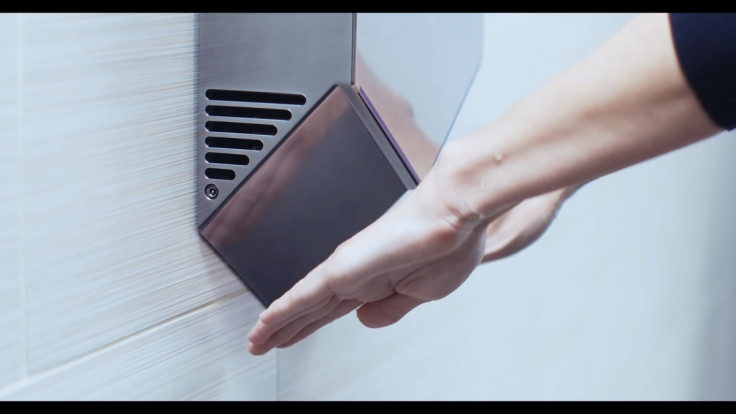Do Dyson hand dryers spread more germs than paper towels or is it a load of hot air?

Those nifty Dyson Airblades might be a more effective alternative to wiping your hands on your jeans, but research from scientists at the University of Westminster suggests they are not as hygienic as you might think. According to a study published in the Journal of Applied Microbiology in January 2016, Dyson's hand dryers could be blasting germs up to three metres across the room, showering everything within that radius with bacteria.
The grim conclusion came from a study by researchers at the university that aimed to find out whether hand dryers were more or less hygienic than traditional paper towels. The researchers first dipped their hands in water containing a harmless virus, then dried their hands with a Dyson Airblade, a standard hot-air hand dryer or a paper towel.
According to the findings, the Dyson dryers spread 1,300 times more germs than paper towels, and 60 times more germs than traditional hand dryers. The consensus was that the Airblade's 430mph air-blasting capabilities meant it spread germs further.
Dirty tricks
But before you go back to the old 'shake and run' technique, it's worth mentioning that there's a bit of rivalry brewing between Dyson and the paper towel industry, with various pieces of research throwing up conflicting results.
In February, for example, Dyson released a video on YouTube claiming that up to 88% of paper towels contain bacteria – before they're even used. The video, titled Paper's Dirty Secret, suggests that paper towels can become contaminated during manufacturing and through dirty air in bathrooms, making them a less hygienic way to dry your hands than, oh, say, a Dyson Airblade.
It followed a previous video, in December 2014, in which Dyson addressed reports that it claimed had been commissioned and reported by paper towel manufacturers trying to give them a bad name, accusing them of "scaremongering" and using "flawed" methodology.
Now Dyson has hit back once more following the most recent findings by University of Westminster, labelling them "misleading", according to the Independent, and claiming the research was carried out under "artificial conditions".
Either way, it all sounds like a load of hot air to us.
© Copyright IBTimes 2025. All rights reserved.






















